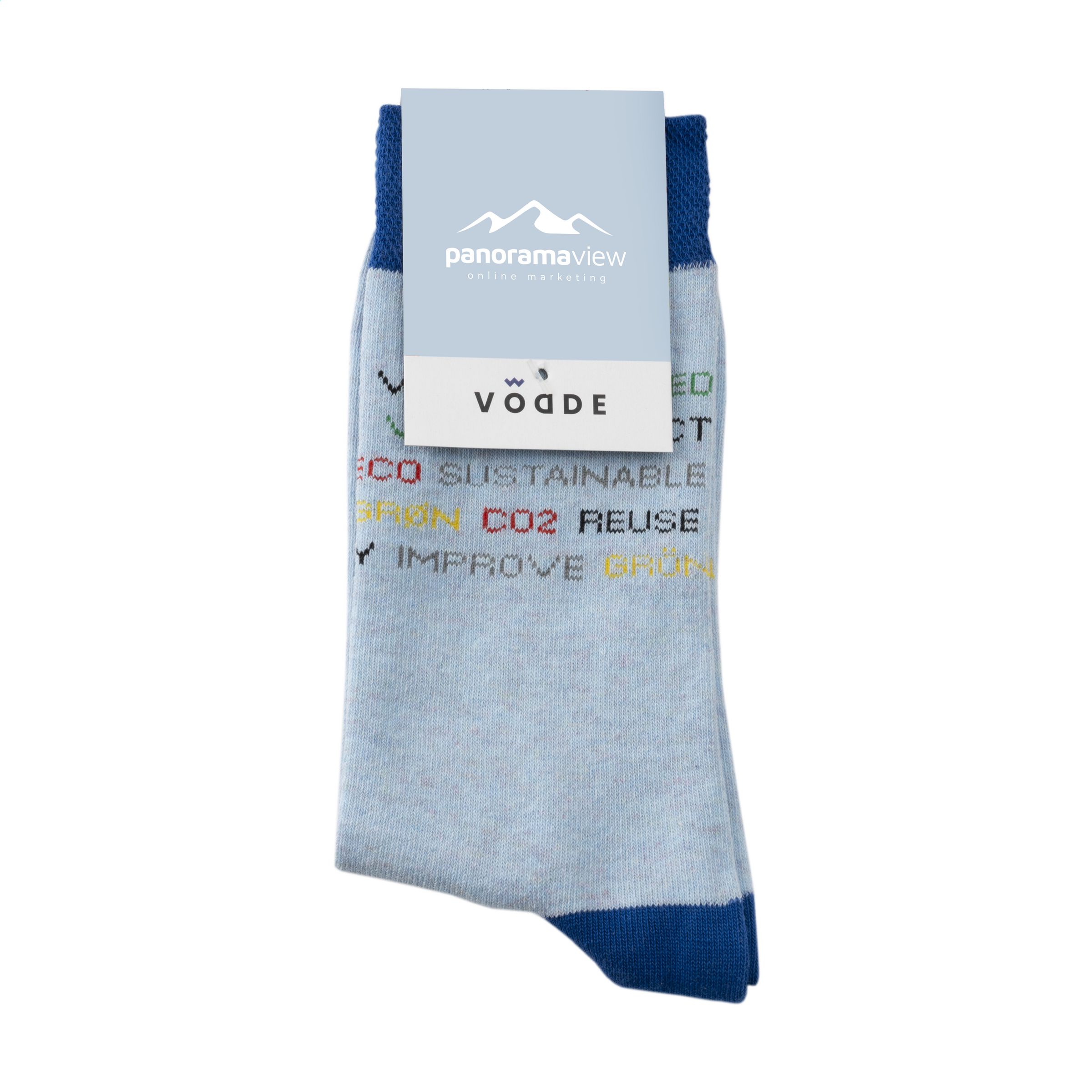
Features
Product number
10235350
Weight
48 g
Dimensions
23 x 2 x 25 cm
Length
23 cm
Height
2 cm
Depth
25 cm
Sustainable Comfort Socks - Bampton - Birmingham
Comfortable socks from Vodde made using a 100% circular economy manufacturing process. These socks are made from collected textiles. The socks consist of 53% recycled cotton (from collected pieces of fabric), 38% recycled polyester (from collected PET bottles), 6% nylon and 3% elastane. Including knitted-in, customised design. All Vodde socks are supplied as standard in pairs with a label, which can be printed in your own full colour design. This way you can design your own socks that perfectly match any corporate identity. These thin quality socks, designed for everyday use, are perfect to combine with a casual outfit. Available in sizes M (36-40) and L (41-46). Minimum order: 100 pairs of socks per size. Minimum order in total: 200 pairs of socks. Optional: Supplied in pairs in a (customised) box made from recycled cardboard - possible from 1,200 pairs of socks. By wearing these socks you are contributing to a sustainable world with less pollution. Developed and tested in the Netherlands. Made in the EU. The base of the socks is made of recycled yarn and comes in a standard colour. You can choose from 21 standard colours of recycled yarn. Any pattern in the base, cuff, heel and toe can be realised in any colour of your choice. The Dutch company Vodde reuses discarded textiles to make new products designed by Dutch designers. Vodde makes its yarn from cotton collected by local 'rag farmers' and from cutting waste from textile production in European countries where Vodde makes its own products. In addition, polyesters derived from PET bottles, nylon, fishing nets and other collected waste are also used.

